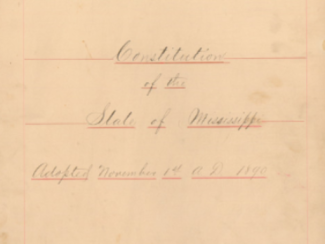
Article 21 of the Mississippi Constitution of 1890 began with, “All elections by the people shall be by ballot.” But that wasn’t all. White delegates decided on voting poll taxes, literacy tests, and a provision targeting Black incarcerated people. This launched a devastating legacy.
For years, white officials committed voter fraud, from perjury to stuffing ballot boxes. The hopes of Reconstruction, which allowed Black men to vote and even rise to political positions, were never designed to last.
By the next election, only 8,615 out of formerly-incarcerated 76,742 Black voters could vote. The Voting Rights Act wasn’t passed until 1965. But the damage didn’t stop there.
In 2021, a federal complaint emerged to address the discrimination still disqualifying Black Mississippi voters. In 2023, white Mississippi representatives even voted to create a separate white-appointed court system.
And Black residents and officials immediately understood what was going on.
Knowing the legal history of this country is crucial. It informs the reality of what’s going on in politics now. When we know that the 1890 Mississippi Plan became a model for the rest of the South, we must refuse to watch history repeat itself today without resistance.